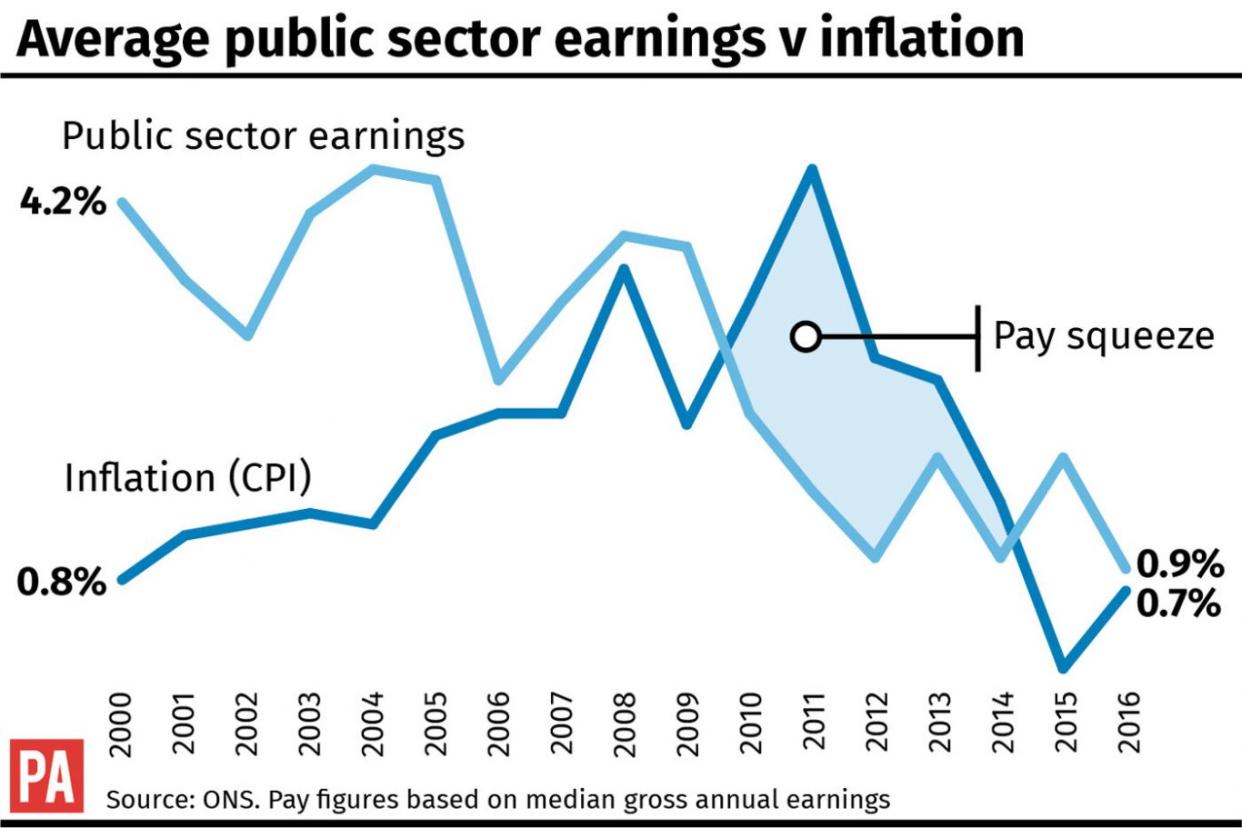Ministers must ease restraint on public service pay, think tank warns

Public services will struggle to recruit and retain the staff they need unless ministers ease the restraint on pay, a leading economic think tank has warned.
A report by the Institute for Fiscal Studies (IFS) found average public sector earnings had fallen by 4% in real terms since 2009-10 under the coalition and Conservative governments.
While private sector pay was hit even harder in the immediate aftermath of the financial crash of 2008, the gap between public and private had since returned to pre-crisis levels.
Continuing pay restraint for public sector workers would, therefore, take their pay to "historically low levels" compared to their private sector counterparts, the report said.

The situation is particularly acute among highly educated professionals and workers in London and the South East where the pay gap with the private sector is greatest.
The report comes after ministers last week signalled the existing pay cap was effectively ended with above-1% rises for police and prison officers.
However the IFS cautioned that increasing public sector pay across the board in line with either prices or private sector earnings would be expensive, adding £6 billion-a-year to the cost of employing the 5.1 million public sector workers by 2019-20.
Such an increase would have to be funded by cutting spending in other areas, raising taxes or increasing borrowing.
The report stated if ministers were interested in public service quality, they should target any increases on those areas where recruitment problems were most severe.
Jonathan Cribb, the report's author, said: "If the Government decides to maintain the 1% cap, we should expect increasing difficulties in recruiting, retaining and motivating high quality public sector staff, reducing the quality and quantity of public services.
"But increasing pay for these workers implies substantial extra costs to public sector employers.
"The Treasury could provide extra funds for this by raising taxes, cutting other spending or borrowing more.
"Asking the NHS, for example, to fund higher pay increases from within existing budgets would be very challenging."


